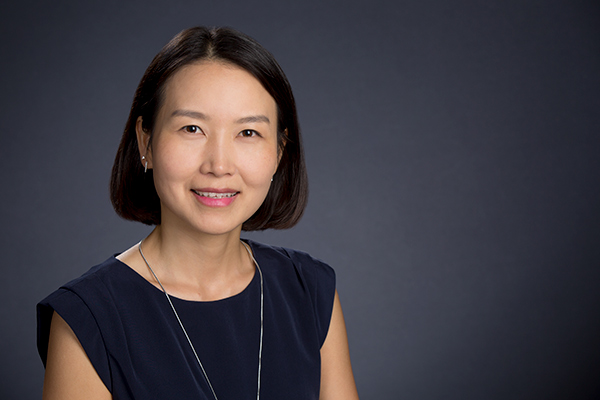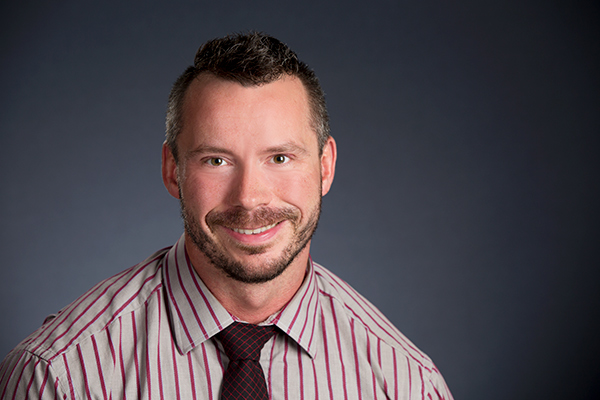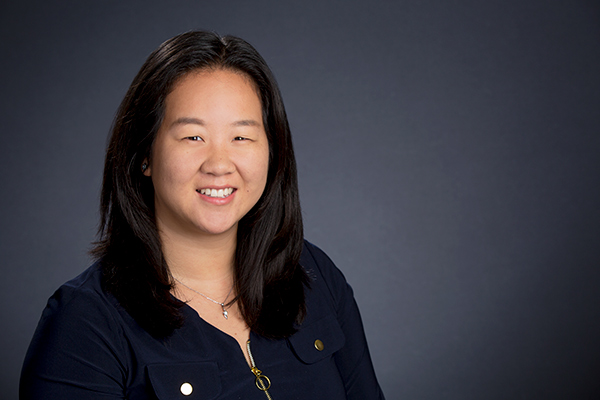The College of Education is happy to welcome 15 new faculty members for the 2017-2018 academic year. This year, the Department of Educational Psychology is joined by Annie Kang, Michael Parent, and Veronica Yan.

Annie Kang
What institution were you most previously with and what was your role?
Most recently, I was a postdoctoral Research Scientist at Columbia University.
What are your research interests?
My major research area is related to testing and measurement. I study statistical methods for analyzing psychometric data and improving the quality of educational and psychological tests. Some example research areas include (multidimensional) item response theory, response time modeling, diagnostic classification modeling, and stochastic test design.
What sparked those interests?
As a former math teacher, I had extensive exposure to various types of assessments such as classroom exams and high-stakes testing. I had always wondered about the functioning of tests and began to inquire how the test performance is related to a student’s academic achievement, what internal and external factors would affect test results, etc. Since then I have become interested in studying psychometrics and understanding the mechanisms of psychological and educational tests.
What are you excited about for your new position at UT?
UT has been one of the top-notch research institutions in the nation, and in particular, it has been known by the very well-established quantitative program. I’m excited about joining such an exceptional program and am looking forward to keeping inspired and promoting excellence in research.
Is there anyone in the department or program whom you wanted to work with or who inspired you to join us?
In addition to my role as an assistant professor, I also serve as an associate director of the Center for Applied Psychometric Research at the College of Education. I look forward to collaborating with the members of the center, including the colleagues, students, and practitioners. I believe this is a great opportunity to develop a substantial research program in the measurement with a variety of resources.
What do you hope to contribute to College of Education or the Austin community?
I hope to help students develop foundational quantitative skills so that they can practice proper statistical methodologies in their fields of study. I’m also committed to assisting and preparing students for pursuing a career in psychometrics and measurement.
What is your starting date?
August 1st, 2017

Michael Parent
What institution were you most previously with and what was your role?
Until this summer, I was an assistant professor at Texas Tech University.
What are your research interests?
My research focuses on the intersections of gender, sexuality, and behavioral health & health disparities. I am PI on an NIH study examining use of non-prescription testosterone among transgender female-to-male individuals, and I have numerous ongoing research projects examining health in diverse populations.
What sparked those interests?
Minority groups face unique, chronic, and socially-based stressors that put them at elevated risk for many health conditions. At the same time, there is a need for the development of community-focused, culturally-competent intervention plans that address the specific needs of marginalized groups in ways that facilitate interest, buy-in, and engagement from communities.
What are you excited about for your new position at UT?
If you ask any of my graduate school colleagues about my new position, they’ll tell you that I’ve dreamed of working at UT since I started grad school! I’m thrilled by the opportunities to work alongside outstanding scholars, to continue to build my research program, to engage with students, and to develop relationships between UT and the Austin community.
Is there anyone in the department or program whom you wanted to work with or who inspired you to join us?
The College of Education has many faculty who have been an inspiration to me for years. In particular, I am excited to work at the same university as scholars such as Dr. Aaron Rochlen, whose work I have followed for years, and Dr. Riegle-Crumb, whose groundbreaking work on gender and education has influenced some of my most recent research efforts.
What do you hope to contribute to College of Education or the Austin community?
I hope that I am able to continue to produce a program of research that will increase the prestige and recognition of UT, that will attract and engage students, and that will be competitive for funding to contribute to the enhancement of the profile of the university. I also hope that my program of research facilitates building bridges with underrepresented groups in Austin and surrounding areas.
What is your starting date?
Aug 1, 2017

Veronica Yan
What institution were you most previously with and what was your role?
Postdoctoral scholar with the Mind & Society Center and Department of Psychology at the University of Southern California.
What are your research interests?
Bridging social, cognitive, and educational psychology fields, my research explores how we can empower people to become motivated and effectively self-regulated learners through the combination of the right mindset and the right toolset.
Many learners arrive at learning situations with the assumption that “learning should feel easy.” What cognitive research demonstrates, however, is that the effective learning strategies that make learning stick are often the ones that introduce difficulties. That is, effective strategies engage learners more effortful and elaborately, and may introduce more experiences of failure early on during learning. Learners tend not to realize this, leading them to selecting against the more effective strategies, in favor of less effective strategies. Instead of thinking ‘learning should feel easy’, a more useful mindset of ‘no pain, no gain’ should lead not only to greater persistence (studying harder) but use of more effective strategies (studying smarter).
What sparked those interests?
I remember taking a psychology class in high school and learning that recall is reconstructed, that memory is malleable, and that some memories that we hold may not even have happened. That blew my mind. It sent me down the path of being studying memory. Between that, my experiences in different education systems, and the importance of learning as a lifelong skill, it was a no brainer to want to study the science behind learning.
What are you excited about for your new position at UT?
So many things! I’m excited that I’m joining such a strong department with great colleagues and graduate students, that the department that offers so much research and grant-writing support to its faculty, that the research interests of the department are so richly interdisciplinary, and that there are so many wonderful initiatives targeted at improving instruction at UT Austin.
Is there anyone in the department or program whom you wanted to work with or who inspired you to join us?
During the application process, I spoke not only to current faculty, but people who had worked here previously. The thing that struck me the most was how happy everyone seemed and how collegial the atmosphere was. Everyone has been so welcoming, and I’m excited to become a part of it.
What do you hope to contribute to College of Education or the Austin community?
Not only do I hope to be a great mentor to UT students and a productive researcher in my own department, but I also hope that my research can make a difference in the instructional practices at the college and in the greater Austin community.
What is your starting date?
Fall 2017

